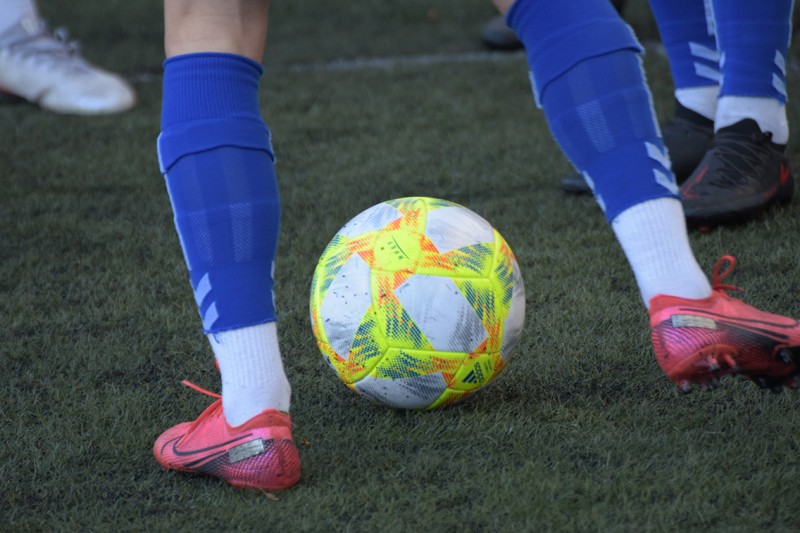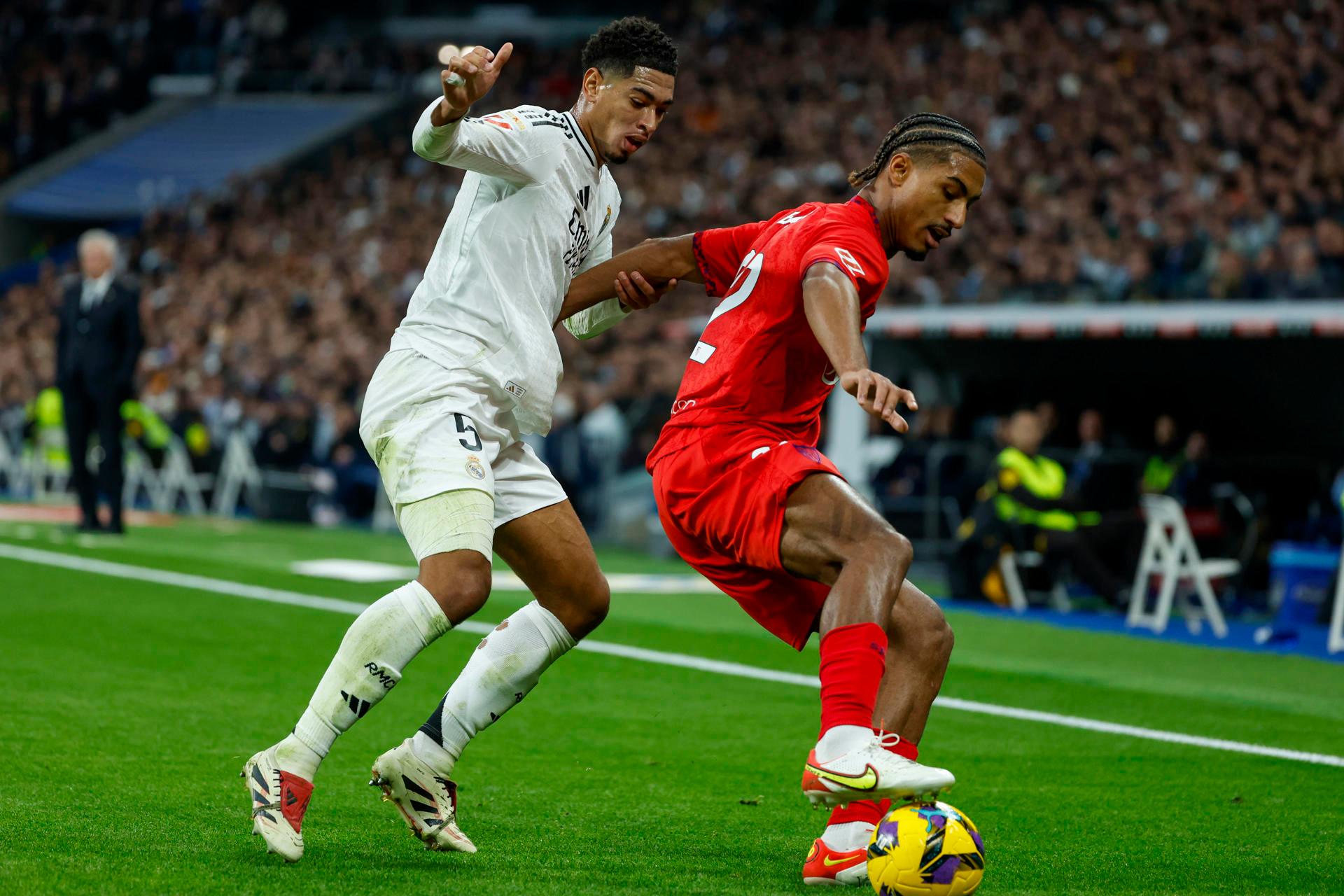How Has Technology Impacted and Improved Soccer Matches

Those who love soccer and have been watching for a few years can probably recall poor decisions made by referees and coaches.
1 year ago
It was common to see unfairly disallowed goals or undeserved red cards while one side was completely clueless about the other’s strategy before the game.
Digital technologies aren’t only for video games. There are several online games based on soccer, especially in slots. Such games also use high-end technology, but you can also go for other online games like Crazy Time, a live game show if you want some of the same adrenaline.
The latest improvements in big data, AI and other technologies have been put to the service of soccer. In some cases, it can change even management choices and affect the health of athletes. Here’s how technology has changed the game.
More teams are using advanced software to crunch big data on individual athletes and teams. It helps to track the players’ performance and strengths and weaknesses, allowing coaches to make much more informed decisions regarding tactics and strategy.
The VAR (Video Assistant Referee) is also a landmark in the sport, protecting referees and players from unfair decisions. Thanks to it, teams are no longer subjected to ill-informed decisions by referees, leading to potentially game-changing consequences.
Athletes have been using wearable devices with GPS tracking and are monitored by biometric vests. It means coaches have real-time information regarding their health conditions, preventing injuries.
It also helps coaches make better decisions based on accurate information regarding each player’s health. Plus, this information gives valuable insights for developing the best training routines and covering specific needs.
Digital technologies have opened new avenues for fans to engage with their favourite teams. The internet and live-streaming platforms allow soccer lovers to follow almost any international competition they want in real-time.
Countless fans use social media platforms to exchange information and follow their favourite athletes or teams. VR transmissions are rare, but they’ll soon become the norm, providing an unprecedently immersive experience with 360-degree views of the stadium.
Much of the same big data teams use to inform their decisions is also used in fantasy sports, which emulate real-life tournaments based on real-life results and stats. Fantasy sports are massively popular, as market numbers suggest. This industry is set to finish in 2024 and is valued at USD 32.75 billion worldwide.
Big data collected from real-life events also plays a significant role in soccer simulators for video games. Recent titles from franchises like EA FC feature real players with moves based on their abilities, providing a much more realistic gaming experience. It means fans don’t need to wait for a real-life match to see their idols in action.
The influence of technology in soccer goes far beyond the field. Clubs have been using advanced software to streamline payroll and other financial operations. Indeed, clubs have considerable numbers to deal with, like transfer fees, player salaries and operational costs in general. After all, it’s pretty difficult to maintain a high level of performance when players and staff aren’t paid timely.
Such accurate data collection systems also raise concerns regarding athletes' privacy. Soccer’s governing bodies worldwide regulate the usage of these technologies, and FIFA plays a vital role in this discussion.
FIFA also has to answer questions like how fair it is to use technology-informed decisions since they could give a considerable edge to clubs with more financial resources to invest in them.
There are still many ways to use technology to benefit soccer. New trends suggest AI will play a more significant part in player training and developing innovative strategies. Meanwhile, transfers, fitness, financial operations and management decisions will likely depend on more refined software.
The health tracking devices already in use can also help prevent injuries and other health problems, assisting with the best training routine for each player based on their biometrics. Globally, over 50 clubs already use AI tools for medical profiles and fitness tests.
We can also expect goal-line technology and semi-automated offside assistants, finally giving an alert (a foul) to human errors during the game. Goal-line systems are used in other sports, like American soccer, cricket and rugby.
A semi-automated offside system was tested during Qatar's 2022 FIFA World Cup. Similarly to the goal line technology, this system uses an array of cameras to cover every angle of the pitch.
Digital technologies aren’t only for video games. There are several online games based on soccer, especially in slots. Such games also use high-end technology, but you can also go for other online games like Crazy Time, a live game show if you want some of the same adrenaline.
The latest improvements in big data, AI and other technologies have been put to the service of soccer. In some cases, it can change even management choices and affect the health of athletes. Here’s how technology has changed the game.
More teams are using advanced software to crunch big data on individual athletes and teams. It helps to track the players’ performance and strengths and weaknesses, allowing coaches to make much more informed decisions regarding tactics and strategy.
The VAR (Video Assistant Referee) is also a landmark in the sport, protecting referees and players from unfair decisions. Thanks to it, teams are no longer subjected to ill-informed decisions by referees, leading to potentially game-changing consequences.
Athletes have been using wearable devices with GPS tracking and are monitored by biometric vests. It means coaches have real-time information regarding their health conditions, preventing injuries.
It also helps coaches make better decisions based on accurate information regarding each player’s health. Plus, this information gives valuable insights for developing the best training routines and covering specific needs.
Digital technologies have opened new avenues for fans to engage with their favourite teams. The internet and live-streaming platforms allow soccer lovers to follow almost any international competition they want in real-time.
Countless fans use social media platforms to exchange information and follow their favourite athletes or teams. VR transmissions are rare, but they’ll soon become the norm, providing an unprecedently immersive experience with 360-degree views of the stadium.
Much of the same big data teams use to inform their decisions is also used in fantasy sports, which emulate real-life tournaments based on real-life results and stats. Fantasy sports are massively popular, as market numbers suggest. This industry is set to finish in 2024 and is valued at USD 32.75 billion worldwide.
Big data collected from real-life events also plays a significant role in soccer simulators for video games. Recent titles from franchises like EA FC feature real players with moves based on their abilities, providing a much more realistic gaming experience. It means fans don’t need to wait for a real-life match to see their idols in action.
The influence of technology in soccer goes far beyond the field. Clubs have been using advanced software to streamline payroll and other financial operations. Indeed, clubs have considerable numbers to deal with, like transfer fees, player salaries and operational costs in general. After all, it’s pretty difficult to maintain a high level of performance when players and staff aren’t paid timely.
Such accurate data collection systems also raise concerns regarding athletes' privacy. Soccer’s governing bodies worldwide regulate the usage of these technologies, and FIFA plays a vital role in this discussion.
FIFA also has to answer questions like how fair it is to use technology-informed decisions since they could give a considerable edge to clubs with more financial resources to invest in them.
There are still many ways to use technology to benefit soccer. New trends suggest AI will play a more significant part in player training and developing innovative strategies. Meanwhile, transfers, fitness, financial operations and management decisions will likely depend on more refined software.
The health tracking devices already in use can also help prevent injuries and other health problems, assisting with the best training routine for each player based on their biometrics. Globally, over 50 clubs already use AI tools for medical profiles and fitness tests.
We can also expect goal-line technology and semi-automated offside assistants, finally giving an alert (a foul) to human errors during the game. Goal-line systems are used in other sports, like American soccer, cricket and rugby.
A semi-automated offside system was tested during Qatar's 2022 FIFA World Cup. Similarly to the goal line technology, this system uses an array of cameras to cover every angle of the pitch.







Comments